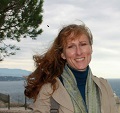Next Gen Navigator
Partnering for Maximum Impact
By Angela Damery
Posted on 2019-10-18
The Wade Institute for Science Education has long valued the power of informal institutions to create precisely the kind of student-led inquiry-based learning and real-world problem solving envisaged by the three-dimensional learning of NGSS. Through our Professional Development Institutes and Customized Professional Learning Services, The Wade Institute delivers professional development (PD) experiences that maximize the impact of the informal institutions and other STEM stakeholders within a region. In the organization’s 33-year history, we have worked with more than 150 partners and collaborators, ranging from museums, nature centers, science and technology centers, zoos, and aquaria to institutions of higher education, engineering companies, and other cultural and educational organizations. Our work is based on the strong belief that informal learning environments, and the institutions that help create them, are an important complement to the learning happening in classrooms.
Phenomena-based learning, the gold standard of NGSS, stresses the importance of engaging kids in investigating questions and problems that are relevant to their own experience in the real world. When crafting our Summer Professional Development Institutes, we work with 3–5 partners in various regions across the state to develop programming focused on locally relevant, observable phenomena. With each partner organization hosting the course for one or two days over the course of the week, teachers may find themselves visiting labs or local industries, conversing with scientists about current research, and learning sampling techniques at field sites of local researchers, nature centers, and environmental education organizations.
While our programs are offered to teachers across the K–12 grade span, middle school teachers comprise the majority of our participants. The experiences provided by the institutes model the kind of active, real-world engagement that is critical for middle school students as their personal identities with science become more fixed and they begin exploring career interests. The Summer Institutes also explore a broad scope of content that provides an ideal lens for the NGSS Crosscutting Concepts that link the middle school frameworks. During this summer’s institute on Cape Cod, for example, teachers investigated the interplay between stability and change as they talked with local researchers about the dynamic relationship between local seal and shark populations and how these changing populations have impacted the tourist industry. In previous years, teachers north of Boston have looked for evidence of energy and matter cycles in aquatic ecosystems as they learned field-sampling techniques on the Ipswich River. In several institutes across the state, teachers have visited the production floor of an engineering facility in their community, seeing firsthand how issues of quantity and scale affect various aspects of the research and development (R&D) processes.
When the institute concludes, teachers develop investigations for their classrooms that incorporate the real-world problems and questions they encountered throughout the week. Seeing examples of how scientists and engineers work gives teachers a better context to bring the Science and Engineering Practices alive in their classrooms, engaging students in authentic investigation that mirrors the learning and thinking that happens in labs, field studies, and R&D facilities. With a broader awareness of their region’s science and engineering enterprises, teachers are also well equipped to create learning experiences that leverage natural and human-made phenomena found in their own communities. Our collaborating partners become resources for teachers throughout the academic year, providing opportunities for both on-site and classroom programs for schools, as well as additional resource support.
During the school year, we bring the collaborative learning experiences into the classroom with our Customized Professional Learning Services, designed to help teachers navigate the standards, implement the Science and Engineering Practices, and promote a higher level of student-led, hands-on, minds-on inquiry in the classroom. These services are tailored to schools’ individual needs, but they draw on the best experiences we have developed through work with our informal education collaborators.
Our collaborative partnership model has offered a powerful approach to creating professional learning experiences for teachers that maximize the impact of the diverse resources within a region. Informal educators bring a wide range of expertise in science content and a variety of perspectives on inquiry-based pedagogy. They introduce teachers to a wealth of local resources that can provide direct experience with compelling, locally relevant phenomena. They help teachers see what science and engineering look like in the real world. The Wade Institute for Science Education works with these partners and collaborators to develop programs that interweave thematic STEM content with inquiry-based pedagogy and support in navigating and connecting with the standards. Teachers leave programs with new tools to use in their classrooms and an enhanced capacity for designing hands-on, minds-on, inquiry-based investigations that integrate the Science and Engineering Practices into student learning in an authentic and meaningful way.

Angela Damery is Director of Education for the Wade Institute for Science Education in Quincy, Massachusetts. She has spent the greater part of her career working as an informal educator, most recently as the Program Manager of Exhibit Interpretation at the Museum of Science, Boston. She also taught seventh-grade math and science at Rising Tide Charter Public School in Plymouth, Massachusetts. Damery is passionate about creating learning experiences that allow kids learn to be curious thinkers and creative problem solvers, and her experiences as an educator both in and out of the classroom have led her to a strong conviction that rich informal learning experiences provide an essential foundation for effective classroom education.
Note: This article is featured in the October 2019 issue of Next Gen Navigator, a monthly e-newsletter from NSTA delivering information, insights, resources, and professional learning opportunities for science educators by science educators on the Next Generation Science Standards and three-dimensional instruction. Click here to sign up to receive the Navigator every month.
The mission of NSTA is to promote excellence and innovation in science teaching and learning for all.
Crosscutting Concepts Professional Learning old Informal Education

